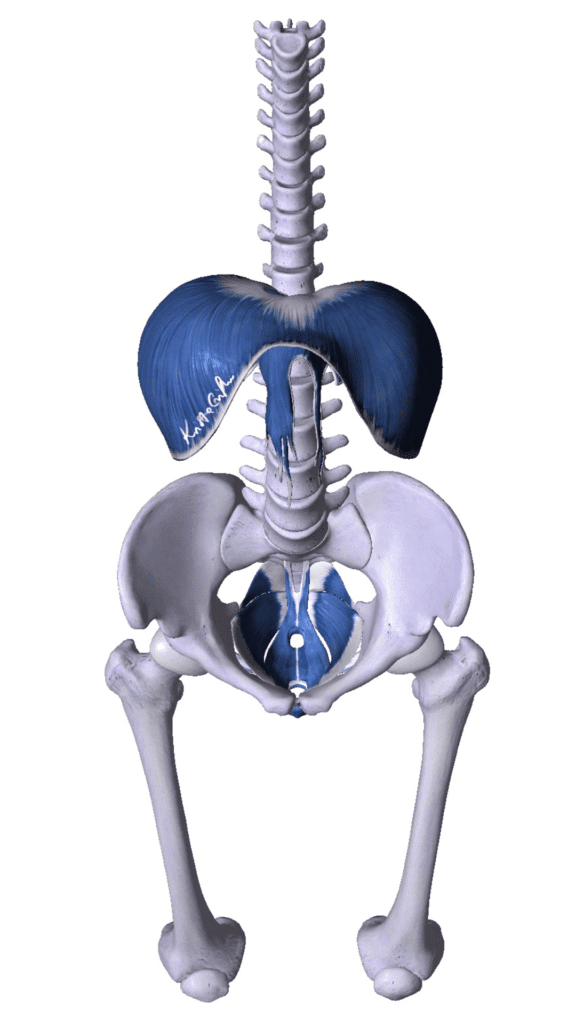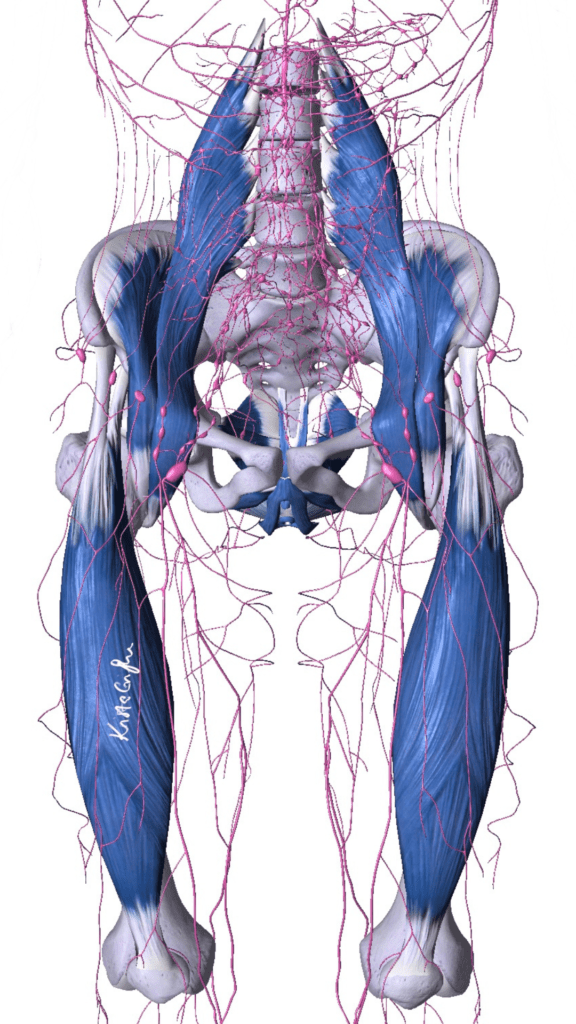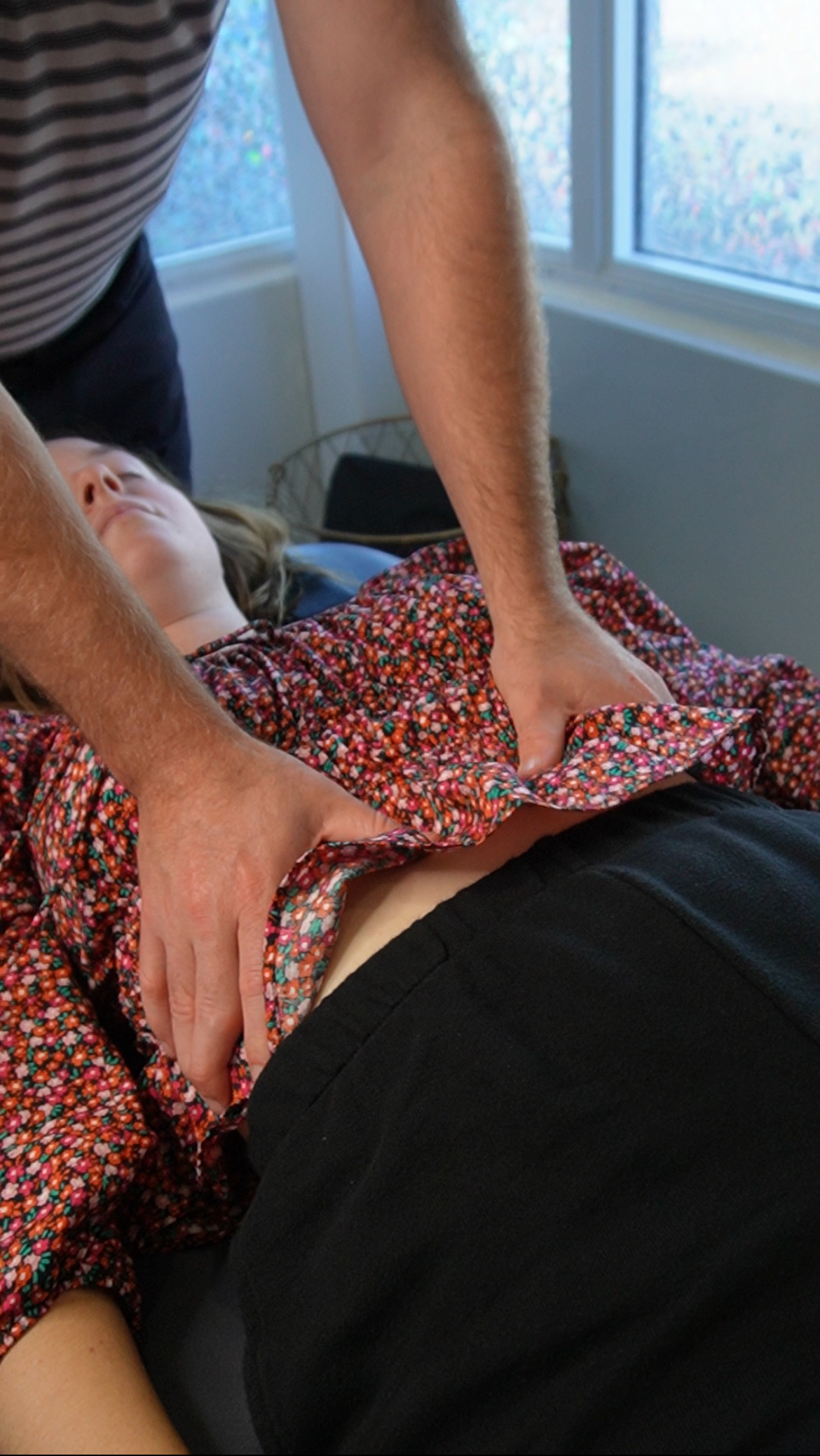the blog
learn with us
Your Hip Pain May Not Be A Hip Problem
Your Hip Pain May Not Be A Hip Problem
Get to the root cause of your hip pain with Osteopathy!
Do you have hip pain when walking? Tight hip flexors or clicking hips? If you’ve read any of our other posts, you won’t be surprised that your hip pain may not be a hip issue. The root cause may be coming from elsewhere in the body. Not to worry though, our Osteopathic Practitioner and Physiotherapist are here to help.
Why do you have Hip Pain?
At The Health Space, our Osteopathic Practitioner and Physiotherapist take a global perspective towards your health symptoms. We typically find weak areas that aren’t painful that are usually the cause for your pain. Poor core strength is a common cause for your hip stiffness or popping hips. The job of your core is to create intra-abdominal pressure to protect your spine and its discs. When your main core muscles are weak, other muscles will tighten to compensate for the weakness. The muscles that create intra-abdominal include the transverse abdominis, internal abdominal oblique, lumbar multifidus, lumbar erectors, diaphragm and pelvic floor. Typically we find one of the first 4 muscles weak and the diaphragm or pelvic floor overworking. In this scenario, the pelvic floor (which includes muscles that attach to the hip) may be tight from overworking. This could be one of the causes of your stiff and tight hips – tightening of your hip muscles to help out your core. Increasing your core strength will relax your hip muscles and help decompress your hips. Manual Osteopathic techniques and Physiotherapy are great at releasing tight and restricted muscles.

Compensation Explained
I’ll use an analogy of a rock climber to further explain this concept. Imagine you’re hanging off a cliff, holding the edge with both hands. Then, one of your hands loses grip and slips off. Your natural instincts will kick in and your hand still holding the edge will tighten up and grip harder, preventing you from falling. In this scenario, your core is the hand that slipped off and your hand gripping the edge is your hip. To relieve the amount of work your gripping hand will do, you would simply grab the edge with your free hand. Improve your core strength, reduce your hip tightness.
If you spend all kinds of energy stretching your hips and not seeing any improvements, try strengthening your core.
Pain while walking or running

Another common problem we find that affects the hip involves the lateral subsystem. This system consists of muscles that help you stand on one leg. So if you experience hip pain when running or walking, this might help you understand your issue as we stand on one foot through gait.
In order to stand on one leg, a few different body parts and their muscles need to work together to complete the task. These parts include your low back/pelvis, hip and ankle. Your low back and hip muscles have to work together to stabilize the pelvis and prevent it from sagging and moving out to the side. Also, our ankle muscles have to stabilize our leg and support the rest of the body, keeping us upright.
Similar to our example of the core, if one muscle in this group is weak, another area has to compensate. Typically in this scenario, we see a hip muscle that is weak and another muscle in the lower back or ankle compensating to create stability to complete the task. Your body is very adaptable and will do everything in its power to accomplish your goals. Here, we’ll see tightness in the same calf and/or lower back. In order to reset this movement, the muscle that is over working must be released before you can properly strengthen the hip.
Lymph drainage can reduce tightness
A third and very often overlooked reason for hip tightness is swollen lymph nodes. If you read our breathing blog or seen Krista’s Instagram posts, you know we are huge advocates for lymphatic work. Our lymph nodes around our hip drain the leg, buttock and more importantly the pelvic organs. These 3 areas all converge to one place and can tend to build up. If you also suffer from poor breathing and don’t move often or well, your lymph nodes in your abdomen will likely be blocked, preventing your lymph nodes around the hip to drain properly. Curt has experienced first hand the benefits of lymph work to increase his range of motion of his hip. It has improved his hip movement more than any manual therapy, strengthening or stretching in the past. We do lymph assessments with all our patients regardless what they come in with, and can teach you techniques to do it on yourself.

Get assessed and feel better!
Like any pain you may experience, it is always best to get checked by a professional in order to get a proper full body analysis. There are always several potential reasons why you may experience hip joint pain and tightness. At The Health Space, we always look to find the cause of your pain, and typically, it’s caused by some other restriction or weakness in the body. The pain you experience is only a signal telling you that your body needs attention. It’s not telling you that’s where the cause is.
If you have hip problems and would like to get to the bottom of the root cause, our Osteopathic Practitioner and Physiotherapist are happily waiting to help you with your health and wellness goals. We encourage you to book an appointment or browse our website to read more about our services and other blogs.

on instagram
You can find us at
17817 Leslie St, Unit 45
Newmarket, ON.
905-630-2129
by appointment only
Our office is by appointment only. We do not have a receptionist on site answering phone calls. The quickest way to book an appointment is online.
curt@thehealthspace.ca
Copyright © 2026 The Health Space